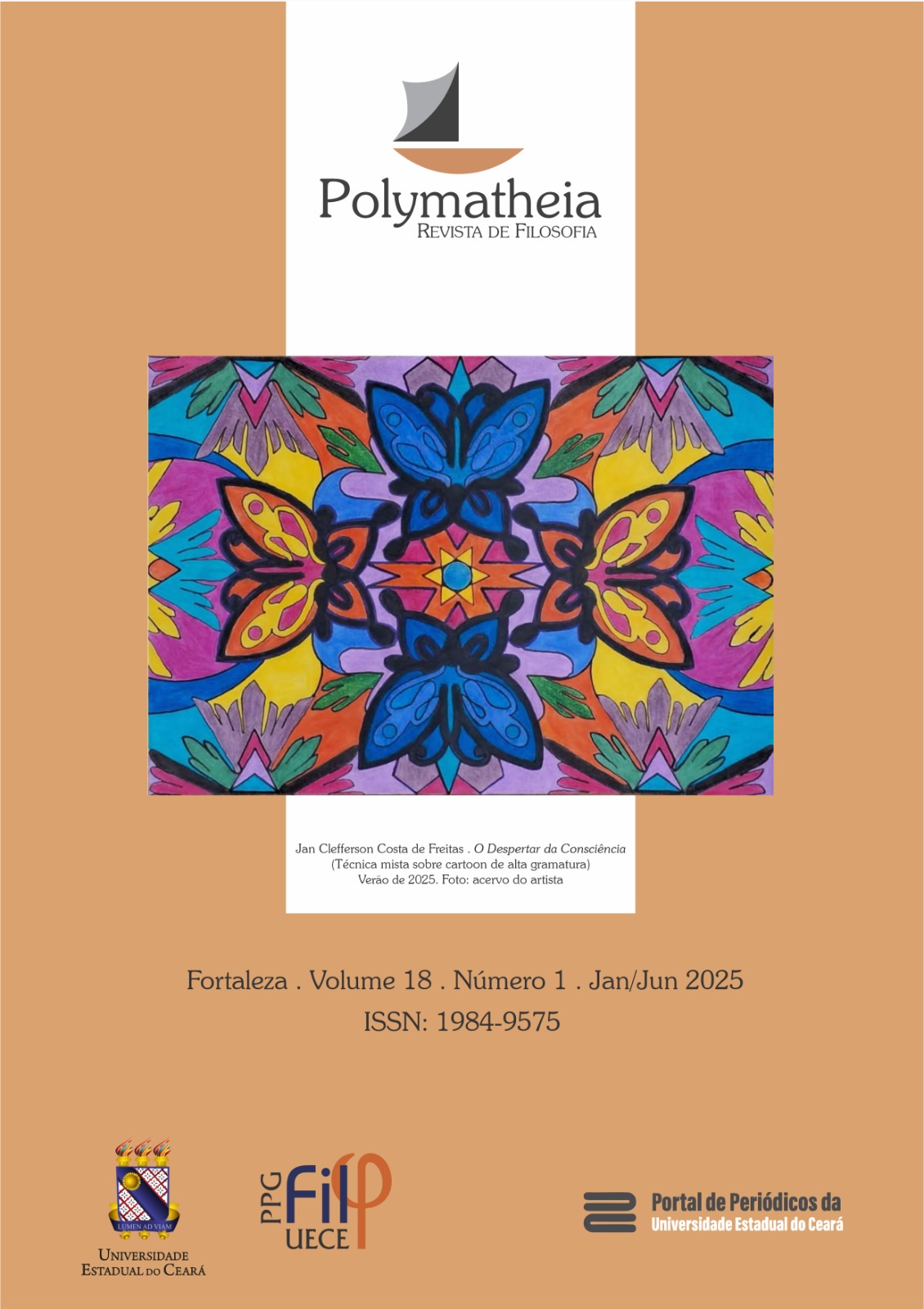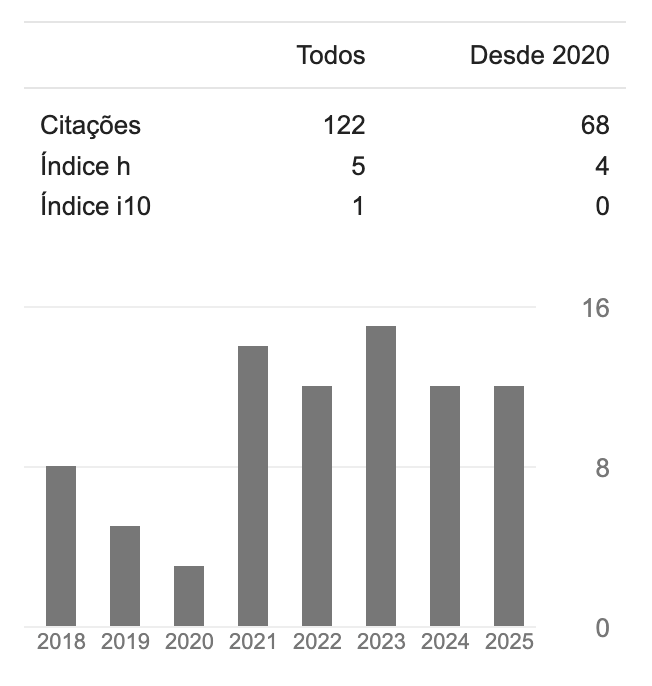De-Centering the Organism: Psychedelic Therapies, Fungi and the Body without Organs
DOI:
https://doi.org/10.52521/poly.v18i1.14994Palavras-chave:
Psychedelics, Schizoanalysis, Fungi, Psychology, AnthropoceneResumo
The encounter of clinical psychology with psychedelic compounds, plants, and mushrooms opens up new possibilities for psychotherapy practices. In the Schizoanalysis of Gilles Deleuze and Félix Guattari, conceptual and experimental tools are found that not only assist in thinking about the psychedelic experience but also enrich clinical practice. The concept of the Body without Organs, which partly stems from Antonin Artaud’s psychedelic experience with peyote in the Mexican deserts, is central to this approach. The philosophical question of “how to create for oneself a Body without Organs?” involves an ethical, aesthetic, and political task. A shift is proposed, dissociating psychology from the neuroscience linked to the organic body, body-form, reified in the image of the organism. By revisiting the anatomophysiological paradigm, based on Foucault's analyses of disciplinary power and biopower, rigid definitions of the body are questioned, and the field of experience is broadened to include other possible narratives and decompositions. The psychedelic experience is not limited to the organic body, but involves an intensive body, body as force. Psychedelic mushrooms can act as powerful intermediaries, deconstructing fixed forms of subject and body, while the mycelium, decentralized and non-binary, unfolds new possibilities. The implications for psychedelic therapies must be approached with caution and awareness of the risks, as Deleuze and Guattari warn. Presenting a framework that shifts the focus away from human-centered views, capturing the “humusity” of Donna Haraway, a fertile ground is proposed for new narratives and fabulations, where mycelium, rhizomes and seeds can thrive in the folds.
El encuentro de la psicología clínica con los compuestos psicodélicos, las plantas y los hongos abre nuevas posibilidades para las prácticas psicoterapéuticas. En la esquizoanálisis de Gilles Deleuze y Félix Guattari, se encuentran herramientas conceptuales y experimentales que no solo ayudan a pensar la experiencia psicodélica, sino que también enriquecen la práctica clínica. El concepto del Cuerpo sin Órganos, que en parte proviene de la experiencia psicodélica de Antonin Artaud con peyote en los desiertos mexicanos, es central en este enfoque. La cuestión filosófica de "¿cómo crear para uno mismo un Cuerpo sin Órganos?" implica una tarea ética, estética y política. Se propone un cambio, disociando la psicología de la neurociencia vinculada al cuerpo orgánico, a la forma del cuerpo, reificada en la imagen del organismo. Al revisar el paradigma anatomofisiológico, basado en los análisis de Foucault sobre el poder disciplinario y la biopolítica, se cuestionan las definiciones rígidas del cuerpo, y el campo de la experiencia se amplía para incluir otras posibles narrativas y descomposiciones. La experiencia psicodélica no se limita al cuerpo orgánico, sino que implica un cuerpo intensivo, un cuerpo-fuerza. Los hongos psicodélicos pueden actuar como poderosos intermediarios, deconstruyendo las formas fijas de sujeto y cuerpo, mientras que el micelio, descentralizado y no binario, despliega nuevas posibilidades. Las implicaciones para las terapias psicodélicas deben ser abordadas con cautela y atención a los riesgos, como advierten Deleuze y Guattari. Presentando un marco que desplaza el enfoque de visiones centradas en el ser humano, capturando la "humanidad" de Donna Haraway, se propone un terreno fértil para nuevas narrativas y fabulación, donde los micelios, los rizomas y las semillas pueden prosperar en los pliegues.
Downloads
Referências
BISPO DOS SANTOS, A. A terra dá, a terra quer. São Paulo: Ubu Editora/PISEAGRAMA, 2023.
CARHART-HARRIS, R. L.; FRISTON, K.J. REBUS and the Anarchic Brain: Toward a Unified Model of the Brain Action of Psychedelics. Pharmacol Rev. 2019 Vol. 71(3), p. 316-344, jul. 2019.
CASTANEDA, C. Porta para o infinito. Rio de Janeiro: Record, 1974.
DELEUZE, G. Conversações. São Paulo: Editora 34, 1992.
DELEUZE, G.; GUATTARI, F. Anti-Oedipus: capitalism and schizophrenia. London: Penguin Books, 2009.
DELEUZE, G.; GUATTARI, F. A thousand plateaus: capitalism and schizophrenia. Minneapolis: The University of Minnesota Press, 1987.
DELEUZE, G.; PARNET, C. Dialogues. New York: Columbia University Press, 1987.
DESPRET, V. Um brinde aos mortos: histórias daqueles que ficam. São Paulo: N-1 Edições, 2023.
DUNKER, C. A hipótese depressiva. In: SAFATLE, V.; JUNIOR, N. da S.; DUNKER, C. (Org.). Neoliberalismo como gestão do sofrimento psíquico. Belo Horizonte: Autêntica, 2021.
FOUCAULT, M. Microfísica do poder. MACHADO, R. (Org.). Rio de Janeiro: Edições Graal, 1979.
FOUCAULT, Michel. The birth of the clinic: an archeology of medical perception. London: Routledge, 2003.
FOUCAULT, M. The birth of biopolitics: Lectures at the College de France, 1978-79. New York: Palgrave Macmillan, 2008.
FREITAS, J. C. C. de; SHANENAWA, M. B. da S.; MAIA, N. C. M. Enteogenia e Psicodelia: as Filosofias da Ancestralidade nas Revoluções Científicas. Kalagatos. [S. l.], v. 21, n. 2, p. eK24041, 2024. Available in: https://revistas.uece.br/index.php/kalagatos/article/view/13187
GUATTARI, Félix. Chaosmosis: An ethico-aesthetic paradigm. Sidney: Power Publications, 1995.
HARAWAY, D. Ficar com o problema: fazer parentes no Chthuluceno. São Paulo: N-1 Edições, 2016.
HARAWAY, D. Manifesto ciborgue: ciência, tecnologia e feminismo-socialista no final do século XX. In: HARAWAY, D.; KUNZRU, H.; TADEU, T (Orgs). Antropologia do ciborgue: as vertigens do pós-humano. Belo Horizonte: Autêntica, 2009.
KRENAK, A. Ideias para adiar o fim do mundo. São Paulo: Companhia das Letras, 2020.
KUBALA, P. Songs of Life: Psychedelic-assisted psychotherapy and Deleuze and Guattari’s ‘desiring-production’. Deleuze and Guattari Studies. Vol. 17, n. 4, p. 482-505, nov. 2023.
LANGLITZ, N. Neuropsychedelia: the revival of hallucinogen research since the decade of the brain. Los Angeles: University of California Press, 2013.
LANGLITZ, N. Psychedelic innovations and the crisis of psychopharmacology. BioSocieties. Dez. 2022.
LAMBERT, J. Psychedelic medicine has a therapy problem: pairing therapy with psychedelic drugs could use more research, or the approach could be dropped altogether. Disponível em: https://www.theatlantic.com/health/archive/2024/08/mdma-fda-rejection/679438/. Acesso em: 04/12/2024.
NETO, A.B.; GIL, L. P.; RAMOS, D. P. Introdução: o xamã como criador e transformador de mundos. In: NETO, A.B.; GIL, L. P.; RAMOS, D. P. (Orgs.). Xamanismos Ameríndios. São Paulo: Editora Hedra, 2024.
OLIVEIRA, J. C. Prefácio. In: TSING, A. L. O cogumelo no fim do mundo: sobre a possibilidade de vida nas ruínas do capitalismo. São Paulo: N-1 Edições, 2022.
RABELLO, E. G.; DA SILVA, H.; PROTTI, L. C. Psychedelics and schizoanalysis: towards a critical philosophy on the production of subjectivity. Kalagatos. [S. l.], Vol. 21, N. 2, 2024. Available in: https://revistas.uece.br/index.php/kalagatos/article/view/13209
SARRIS, J. et al. Artificial intelligence and psychedelic medicine. Annals of the New York Academy of Sciences. 1540(1), 5–12, out. 2024.
SEKULA, A. D. et al. Virtual reality as a moderator of psychedelic-assisted psychotherapy. Frontiers in Psychology. Vol. 13, mar. 2022.
SIMAS, L. A.; RUFINO, L. Fogo no mato: a ciência encantada das macumbas. Rio de Janeiro: Mórula Editoral, 2018.
STAMETS, P. Mycelium running: how mushrooms can help save the world. New York: Ten Speed Press, 2005.
STENGERS, I. Uma outra ciência é possível: manifesto por uma desaceleração das ciências. Rio de janeiro: Bazar do Tempo, 2023.
TSING, A. L. O cogumelo no fim do mundo: sobre a possibilidade de vida nas ruínas do capitalismo. São Paulo: N-1 Edições, 2022.
VIVEIROS DE CASTRO, E. O chocalho do xamã é um acelerador de partículas. Revista Sexta-feira. [S. I.], n. 4, p. 26-36, 1999.
Downloads
Publicado
Como Citar
Edição
Seção
Licença
Copyright (c) 2025 Ernesto Grillo Rabello, Giuliana De Paula Oliveira, Lucas Conforti Protti, Fabio Hebert da Silva

Este trabalho está licenciado sob uma licença Creative Commons Attribution 4.0 International License.











